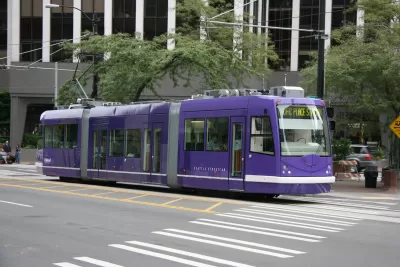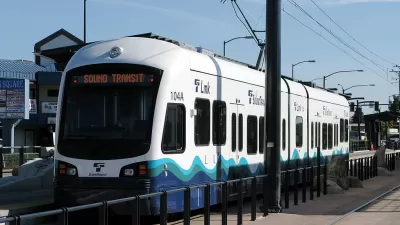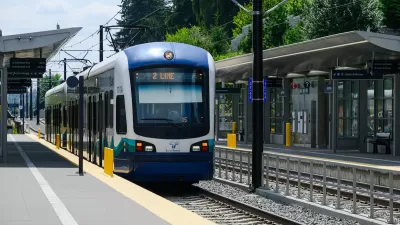The city council approved funding for a new streetcar line, but cost increases mean the project is behind schedule and federal funds could be in jeopardy.

The Seattle City Council recently approved a $9 million loan for design and engineering work for the First Avenue streetcar project, a 1.3-mile route that would connect the system’s two existing lines.
The new line was originally scheduled to open in 2018, but delays related to project cost increases now have the line scheduled to start running in 2026. "The city had secured $50 million of $75 million in expected federal funding for the streetcar, but that could lapse next year," report Heidi Groover and Michelle Baruchman.
Projections show the streetcar system with the new line will triple annual ridership to up to 6 million riders. Proponents say the streetcars have more capacity than buses and the expanded system will have the potential to attract new riders.
But, in addition to the uncertainty about the project schedule and funding, questions have arisen about the system’s vehicles. "Some Seattleites were left scratching their heads at the news that the city ordered cars for the new line that are 9 feet longer and about 21,000 pounds heavier than the cars in use, creating compatibility issues with the existing lines," note Groover and Baruchman.
FULL STORY: ‘Do people actually ride the streetcars?’ Your Seattle streetcar questions answered

Planetizen Federal Action Tracker
A weekly monitor of how Trump’s orders and actions are impacting planners and planning in America.

Maui's Vacation Rental Debate Turns Ugly
Verbal attacks, misinformation campaigns and fistfights plague a high-stakes debate to convert thousands of vacation rentals into long-term housing.

San Francisco Suspends Traffic Calming Amidst Record Deaths
Citing “a challenging fiscal landscape,” the city will cease the program on the heels of 42 traffic deaths, including 24 pedestrians.

Defunct Pittsburgh Power Plant to Become Residential Tower
A decommissioned steam heat plant will be redeveloped into almost 100 affordable housing units.

Trump Prompts Restructuring of Transportation Research Board in “Unprecedented Overreach”
The TRB has eliminated more than half of its committees including those focused on climate, equity, and cities.

Amtrak Rolls Out New Orleans to Alabama “Mardi Gras” Train
The new service will operate morning and evening departures between Mobile and New Orleans.
Urban Design for Planners 1: Software Tools
This six-course series explores essential urban design concepts using open source software and equips planners with the tools they need to participate fully in the urban design process.
Planning for Universal Design
Learn the tools for implementing Universal Design in planning regulations.
Heyer Gruel & Associates PA
JM Goldson LLC
Custer County Colorado
City of Camden Redevelopment Agency
City of Astoria
Transportation Research & Education Center (TREC) at Portland State University
Jefferson Parish Government
Camden Redevelopment Agency
City of Claremont





























